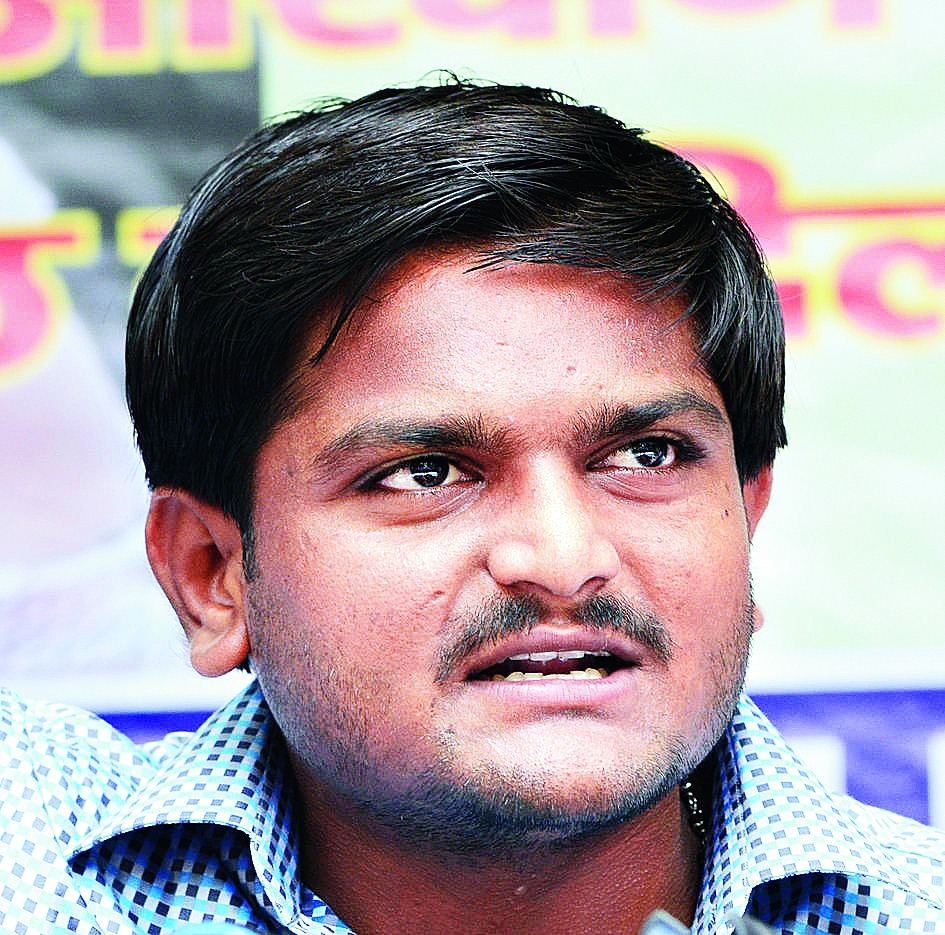
Aug. 29: A politically dominant and generally well-off upper caste agitating for Other Backward Class status may sound paradoxical, but political analyst Achyut Yagnik has an explanation for the Patel protests that have rocked Gujarat.
"We know that Patels cannot be given OBC status," Yagnik told The Telegraph, citing chief minister Anandi Patel's remark that the Patels do not meet the criteria for the grant of reservation benefits.
"This agitation, like the (anti-Mandal movement of the) 1990s, is essentially anti-reservation. The core agenda of the agitation is to oppose all reservations."
It's a view echoed by several others, who include both opponents and supporters of the current agitation that turned violent and witnessed seven deaths after its 22-year-old spearhead, Hardik Patel, was briefly detained on Tuesday.
The "underlying agenda" of what appears a "pro-reservation movement" is to get all caste reservations scrapped, claimed agitation supporter and former Surat Diamond Association president Rohit Mehta.
Ketan Patel, a core member of Hardik's Patidar Anamat Andolan Samiti, which is leading the agitation, spelt it out: "If you cannot give us OBC quota benefits, why not scrap the caste-based quotas completely and have reservation based solely on economic criteria for all?"
Gaurang Jani, who teaches sociology at Gujarat University and opposes the agitation, said the root of the problem was that the Patels, after dictating the political agenda in Gujarat for decades, had begun experiencing an economic downswing in the past few years.
He cited a second paradox: the Patels, who had initially welcomed the so-called Narendra Modi model of development in Gujarat, later began suffering the consequences of its tilt towards "jobless growth" and big business.
The community, which dominated small-scale industries such as brass and ceramic works, real estate, diamond, and tool-making and other engineering sectors, witnessed the closure of more than 70,000 units as incentives dried up. Surat's diamond industry headed into a crisis, and suicides by sacked diamond polishers followed.
Patel farmers, who mainly grow cash crops such as cotton and groundnuts, have not received good prices for two seasons. On the other hand, Modi's policies created few jobs, and those available were mainly contractual ones, offering little security.
"The Patels were unnerved by the rising power of the lower Kshatriya castes and OBCs thanks to job and college seat reservations," said an analyst who didn't wish to be named. "The collapse of small-scale industry added to their woes and propelled them to agitate."
Hardik's agitation, which began in early July after two years of simmering Patel discontent, has found the strongest support in Surat, the ceramic hub of Morbi, and other Patel strongholds.
Mehta, the former diamond association chief, says he belongs to the OBC caste of Modh Ghanchi but supports the agitation.
"It's time we took a second look at caste reservation and evolved some economic parameters," he said. "I feel it's immoral to give reservation benefits on the basis of caste."
Rohit Patel, president of the Gujarat Chamber of Commerce and Industry, too expressed support for the agitation and said: "Affirmative action on the basis of economic criteria is the only way forward."
Yagnik and Jani have seized upon such comments to underline their theory of a hidden agenda.
"Even if the Patels are included in the OBC category, how many of them will gain? Most will be barred by the creamy layer clause," Jani said. "Nobody is highlighting this point, neither the chief minister nor Hardik."
Only families that earn less than Rs 4.5 lakh a year are entitled to OBC reservation benefits in Gujarat.
BJP flurry
With six civic corporations due to vote in October, including those in Ahmedabad, Vadodara and Surat, chief minister Anandi Patel is "exploring alternative options" to placate Patels, a state BJP official said.
One possibility is recruiting more Patels into government jobs, especially the lower rungs of the police and administration where their representation is "abysmal".
Party officials have been told to meet the victims of this week's police excesses and listen to their demands.
Sources said the BJP would try and breach Hardik's support base using its two traditional planks: Gujarati pride and the "good work" done by its governments.
By next week, a " toli" - a team of three local workers -will be assigned to every ward, state BJP spokesperson I.K. Jadeja said.
"At the end of the day, Patels have too much of a stake in the system to become permanent rebels," said Jayantibhai Barot, a former MLA who has worked closely among Patels.
"They get angry and shout abuses but quickly realise when they have erred. Now, many Patels are saying that Hardik's demands may be legitimate but they can't punish the BJP for failing to fulfil them at once."
On Thursday, groups of agitators had positioned themselves outside the offices and homes of the BJP's Patel MLAs in south Gujarat. They were rumoured to be armed with boulders but the police were instructed not to act unless the provocation was "extraordinarily strong", an MP from the region said.
"To my surprise, they shouted slogans and dispersed."
Patel support has been key to the BJP's stranglehold on Gujarat for the past two decades. Believed to make up at least 15 per cent of the state's population, the well-organised Patel's have the highest number of caste forums and their own magazines, directories and websites.
They have given the state four chief ministers, including the current one. The state BJP chief is a Patel too. The community accounts for seven ministers and five of the state's 26 MPs and over 40 of its 182 MLAs.











